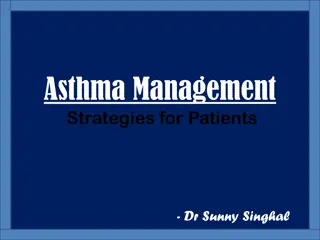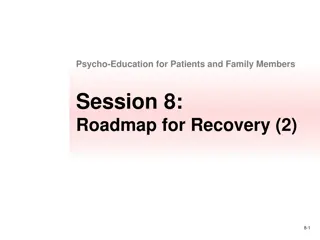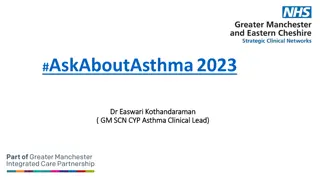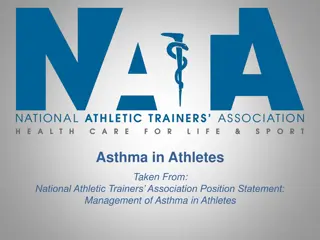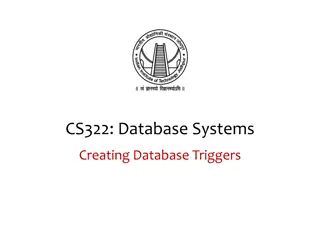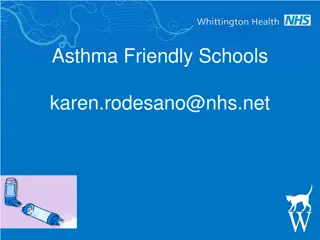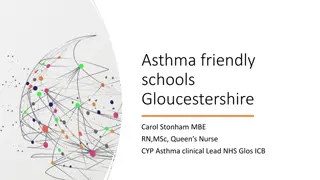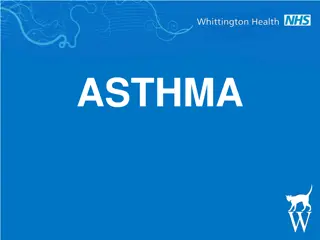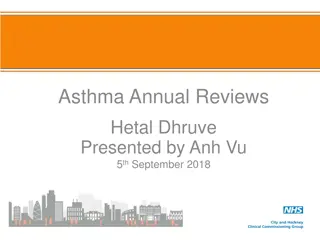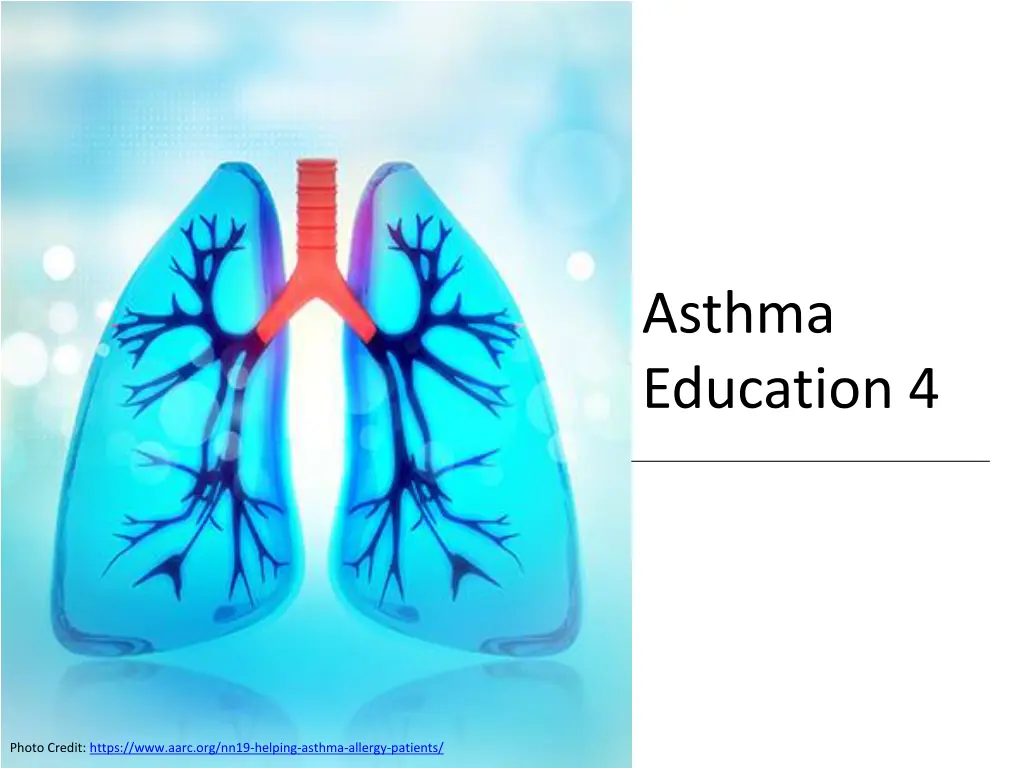
Asthma Triggers and Allergies Management" (33 characters)
Learn about asthma triggers, including allergens like dust mites and pollen. Discover how to manage triggers to improve asthma symptoms and quality of life. Understand the asthma-allergy connection and the importance of identifying and minimizing exposure to allergens. (223 characters)
Download Presentation

Please find below an Image/Link to download the presentation.
The content on the website is provided AS IS for your information and personal use only. It may not be sold, licensed, or shared on other websites without obtaining consent from the author. If you encounter any issues during the download, it is possible that the publisher has removed the file from their server.
You are allowed to download the files provided on this website for personal or commercial use, subject to the condition that they are used lawfully. All files are the property of their respective owners.
The content on the website is provided AS IS for your information and personal use only. It may not be sold, licensed, or shared on other websites without obtaining consent from the author.
E N D
Presentation Transcript
Asthma Education 4 Photo Credit: https://www.aarc.org/nn19-helping-asthma-allergy-patients/
Module 4 Questions 1.What is it called when asthma symptoms get bad? a) An asthma encounter b) An asthma score c) An asthma attack or flare d) An asthma action 2. What is an asthma trigger? a) Something that helps stop an asthma attack b) Something that might cause an asthma attack c) Something that helps prevent an asthma attack d) Something that slows down an asthma attack 3. Which of these are NOT common asthma triggers? a) A cold, the flu, exercise, cold air b) Smoke or other air pollution c) Grass or weed pollen, dust, pet dander d) Plastic cups, glasses, or bowls
Triggers Inflammation caused by asthma increases sensitivity to triggers, which can worsen your asthma symptoms. This is known as an asthma attack or flare. Triggers can be anything that might cause an asthma attack or flare and they vary from person to person. You can be sensitive to a few triggers or to many. It is important to identify triggers early in order to control your symptoms and reduce your chance of experiencing an asthma attack or flare.
Triggers Triggers come in many forms Allergies Dust mites, pollen, mold, pet dander Irritants Smoke and other air pollutants Weather Dry wind, cold air, sudden changes in weather Exercise Infections Cold, Flu
Asthma-Allergy Connection 80% of asthmatic children are triggered by allergies. Therefore it is important to identify and limit exposure to allergens you are sensitive to. Allergies can be mitigated using over-the-counter or prescription medication. It is extremely helpful to minimize your exposure to allergens to improve your quality of life and reduce the need for medication.
Managing Triggers Allergies Pet dander keep pets out of room and wash them weekly Dust mites wash bedding weekly and use dust mite encasement for mattress and pillows Mold use a dehumidifier and throw away any moldy items Pollen limit time outside during high pollen seasons and shower before going to bed after potential exposure Irritants No smoking in the house or around the person with asthma Avoid outdoor exposure to campfires or other sources of smoke or air pollutants
Managing Triggers (Continued) Weather Monitor the weather forecast and use an air conditioner on days with high levels of pollen, humidity or smog Cover your face outside during significant weather changes and days with poor air quality Exercise Only exercise outside when air quality is good Properly warm up and cool down before and after your workout Infections Get a yearly flu shot Do not share items that can easily spread germs (cups, utensils, towels, etc.)
Module 4 Questions (re-visited) 1. What is an asthma trigger? a) Something that might cause an asthma attack b) Something that slows down an asthma attack c) Something that helps stop an asthma attack d) Something that helps prevent an asthma attack 2.What is it called when asthma symptoms get bad? a) An asthma attack or flare b) An asthma encounter c) An asthma action d) An asthma score 3. Which of these are NOT common asthma triggers? a) A cold, the flu, exercise, cold air b) Plastic cups, glasses, or bowls c) Smoke or other air pollution d) Grass or weed pollen, dust, pet dander


